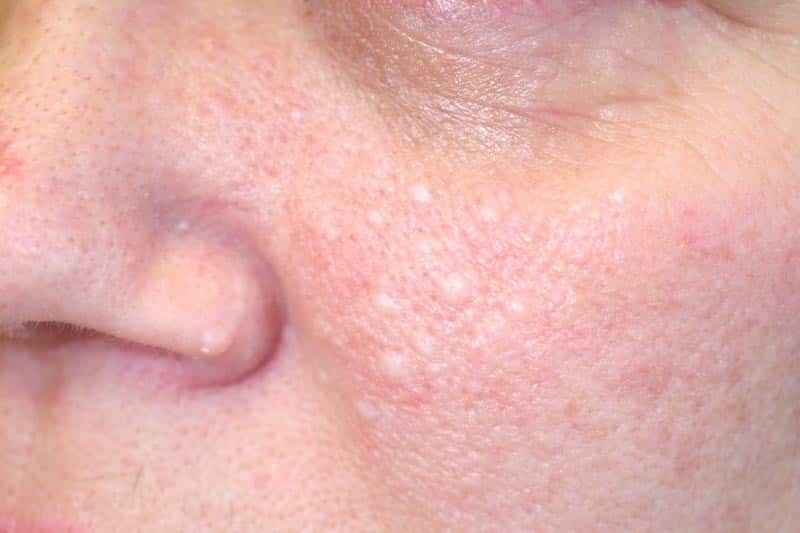Birt-Hogg-Dubé Syndrome

Birt-Hogg-Dubé Syndrome is the underlying cause of many skin tags. A genetic mutation causes it, and those with it are likely to develop benign skin growths throughout their lifetimes. There are several symptoms associated with this syndrome.
The most common symptom is multiple small skin tags. This can cover large portions of the body or be isolated to certain areas. When separated, the skin tags are usually found in clusters on sites such as the neck, armpits, groin area, and under the breasts. Skin tags in these areas tend to be about dime-sized and protrude from the body by about half an inch.
Birt-Hogg-Dubé Syndrome also causes benign tumors to grow in other places, including the lungs and around nerves found in the hands and feet. The tumors that grow on nerve tissues can cause paralysis or feelings of numbness.
This syndrome has been tied to various other symptoms, including baldness, reduced sensitivity to pain (particularly severe burns), kidney disease, cartilage, bone tissue degeneration, joint stiffness or swelling, liver spots on the skin, and the buildup of calcium within cells.










